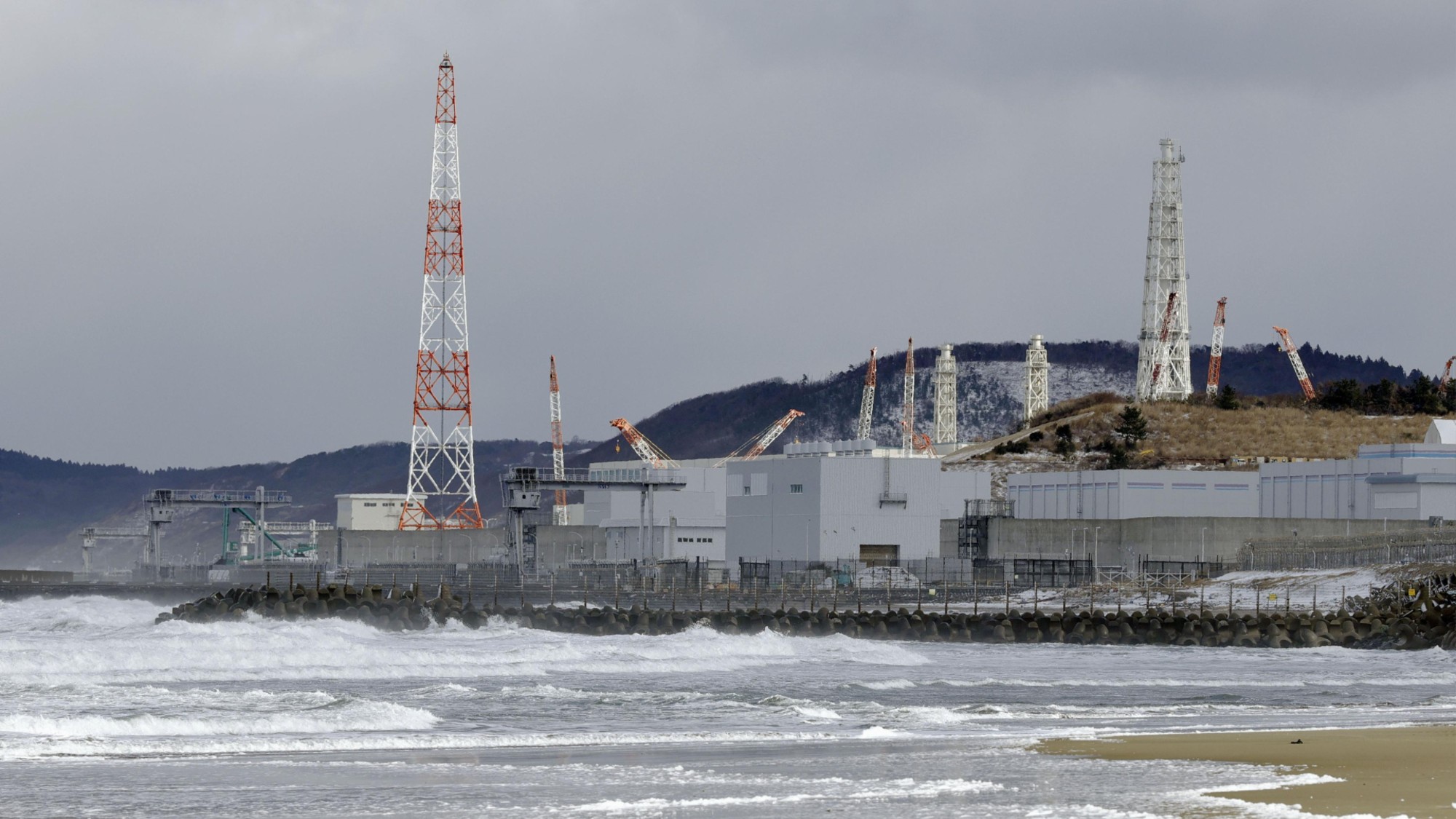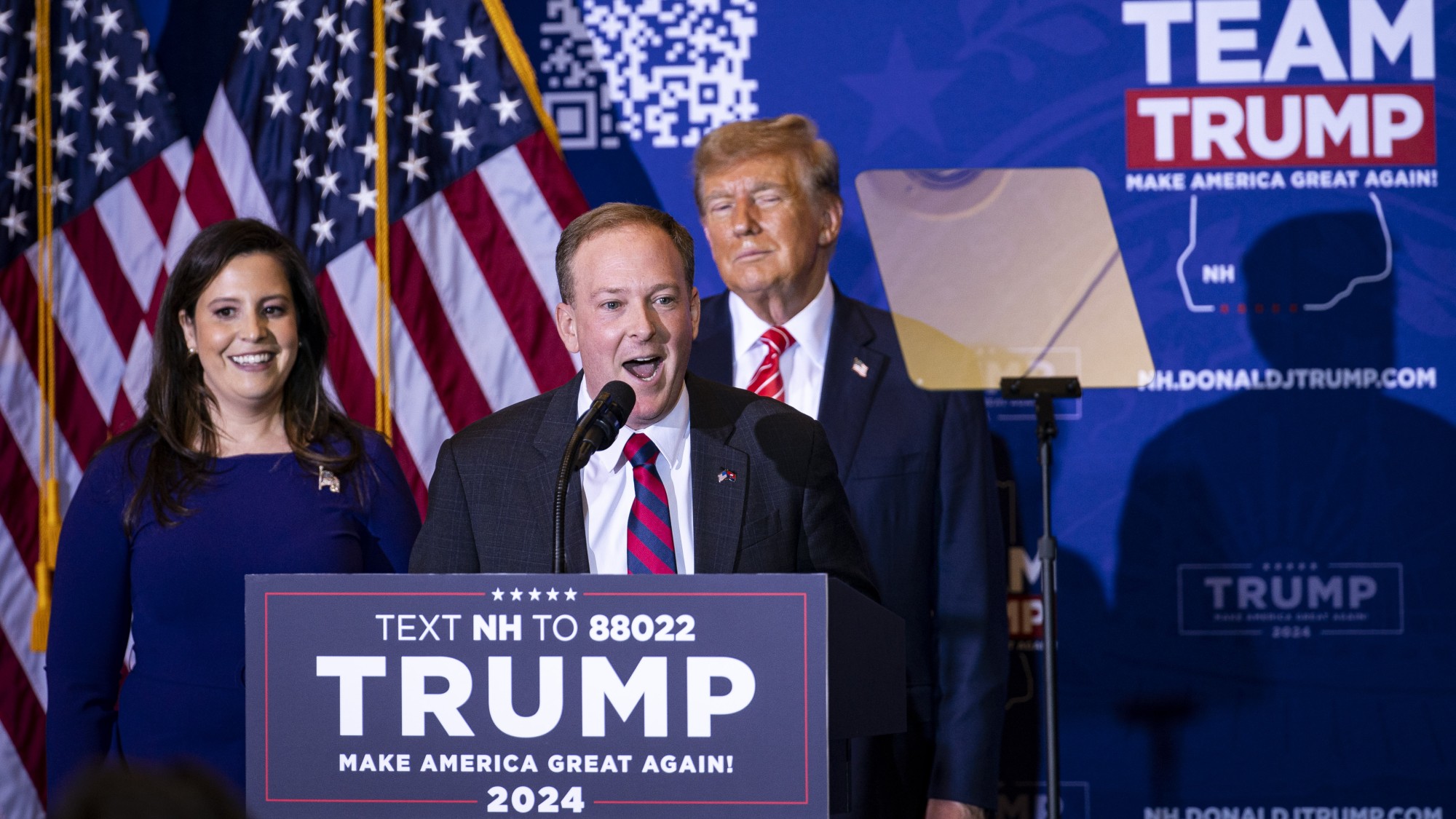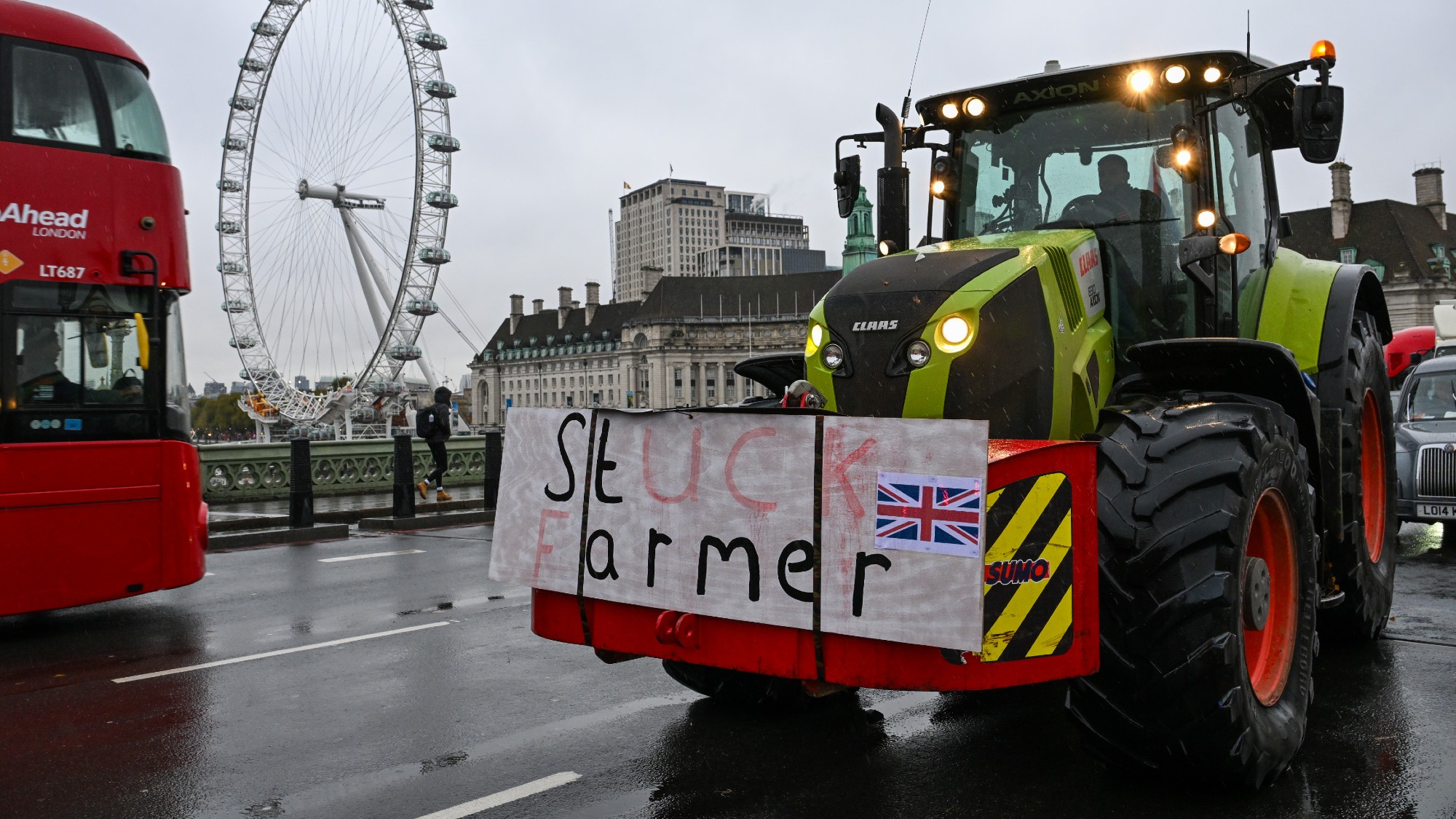How realistic are the UK’s new greenhouse gas emissions targets?
Boris Johnson is set to announce ‘world-leading’ climate commitments

A free daily email with the biggest news stories of the day – and the best features from TheWeek.com
You are now subscribed
Your newsletter sign-up was successful
The UK is to “toughen” its targets on greenhouse gas emissions for the next 15 years in new plans to be announced ahead of the UN climate conference in November.
The Guardian says the UK will be “the first major developed economy” to set more stringent targets, “intended to help spur further action by other governments” in the build up to COP26, the vital climate talks that will be hosted by the UK in Glasgow this year.
What are the new targets likely to be?
The Week
Escape your echo chamber. Get the facts behind the news, plus analysis from multiple perspectives.

Sign up for The Week's Free Newsletters
From our morning news briefing to a weekly Good News Newsletter, get the best of The Week delivered directly to your inbox.
From our morning news briefing to a weekly Good News Newsletter, get the best of The Week delivered directly to your inbox.
The new targets, which have not been confirmed by the government but which The Guardian says it was informed of by independent sources, will be to cut carbon dioxide levels by 78% by 2035, compared to 1990 levels.
The new recommendations follow the advice of the government’s independent Climate Change Committee (CCC). “This would be a world-leading position,” says the BBC.
Currently, the UK’s target is a 68% reduction of carbon emissions by 2030, which was announced by the prime minister, Boris Johnson, only last December. That represented “a significant increase on the current target of about 57% reductions” said The Guardian at the time.
The new commitments come as US President Joe Biden prepares to host a virtual climate summit in Washington DC involving 40 world leaders. Biden will seek new pledges from the world’s biggest carbon emitters to fulfil the 2015 Paris climate agreement.
A free daily email with the biggest news stories of the day – and the best features from TheWeek.com
How will the new commitments be achieved?
“Hitting the target will require changes to most industrial activity,” says the Financial Times, including “an electricity system that operates without generating carbon emissions”.
The CCC report that the government has accepted says that “low-carbon investment must scale up to £50 billion each year in the UK”, and that around 1% of GDP will need to be spent on shifting away from fossil fuels over 30 years, according to the BBC’s environmental analyst Roger Harrabin.
The targets will also require “more electric cars, low-carbon heating, renewable electricity and, for many, cutting down on meat and dairy”, he adds. “Homes will need to be much better insulated, and people will be encouraged to drive less and walk and cycle more. Aviation is likely to become more expensive for frequent fliers.”
Are they realistic?
The chairman of the CCC, Lord Deben, said the 2020s “must be a decisive decade of progress and action” over climate change, warning that “if policy is not scaled up across every sector, if business is not encouraged to invest, if the people of the UK are not engaged in this challenge”, the UK will not deliver on its targets.
And while the government may be taking its lead from the CCC in setting its ambitious new targets, it has consistently failed to achieve targets previously set by the independent advisory group. Last year, the CCC said in a progress report on reducing UK emissions that the UK had “failed on 17 out of 21 progress indicators” and that only “two of 31 key policy milestones have been met over the past year”, says CarbonBrief.
Tom Burke, from the environmental think tank E3G, wants to see a more focused approach from the government: “The most important thing, I think, is for [the prime minister] to focus his policy around energy efficiency, around wind and solar, and around storage of electricity and the management of the grid.”
Speaking to the BBC’s Today programme, Burke said: “At the moment, it’s a bit of a Boris blunderbuss and is a huge range of marginal things instead of a concentration of effort on those things that will deliver the most emissions reductions in the fastest time.”
Labour shadow business secretary Ed Miliband, a former energy and climate change secretary of state, said the new proposals were “targets without delivery”, adding “while any strengthening of our targets is the right thing to do, the government can’t be trusted to match rhetoric with reality”.
Sorcha Bradley is a writer at The Week and a regular on “The Week Unwrapped” podcast. She worked at The Week magazine for a year and a half before taking up her current role with the digital team, where she mostly covers UK current affairs and politics. Before joining The Week, Sorcha worked at slow-news start-up Tortoise Media. She has also written for Sky News, The Sunday Times, the London Evening Standard and Grazia magazine, among other publications. She has a master’s in newspaper journalism from City, University of London, where she specialised in political journalism.
-
 Political cartoons for February 21
Political cartoons for February 21Cartoons Saturday’s political cartoons include consequences, secrets, and more
-
 Crisis in Cuba: a ‘golden opportunity’ for Washington?
Crisis in Cuba: a ‘golden opportunity’ for Washington?Talking Point The Trump administration is applying the pressure, and with Latin America swinging to the right, Havana is becoming more ‘politically isolated’
-
 5 thoroughly redacted cartoons about Pam Bondi protecting predators
5 thoroughly redacted cartoons about Pam Bondi protecting predatorsCartoons Artists take on the real victim, types of protection, and more
-
 Fifteen years after Fukushima, is Japan right to restart its reactors?
Fifteen years after Fukushima, is Japan right to restart its reactors?Today’s Big Question Balancing safety fears against energy needs
-
 Can the world adapt to climate change?
Can the world adapt to climate change?Today's Big Question As the world gets hotter, COP30 leaders consider resilience efforts
-
 Why are flash floods in Texas so deadly?
Why are flash floods in Texas so deadly?Today's Big Question Over 100 people, including 27 girls at a summer camp, died in recent flooding
-
 What are Trump's plans for the climate?
What are Trump's plans for the climate?Today's big question Trump's America may be a lot less green
-
 Starmer vs the farmers: who will win?
Starmer vs the farmers: who will win?Today's Big Question As farmers and rural groups descend on Westminster to protest at tax changes, parallels have been drawn with the miners' strike 40 years ago
-
 Is Cop29 a 'waste of time'?
Is Cop29 a 'waste of time'?Today's Big Question World leaders stay away as spectre of Donald Trump haunts flagship UN climate summit
-
 Why is Mexico City running out of water?
Why is Mexico City running out of water?Today's Big Question Climate change and bad planning bring on 'Day Zero'
-
 Is America running out of electrical power?
Is America running out of electrical power?Today's Big Question The nation's power grid appears to be reaching critical levels due to emerging technologies